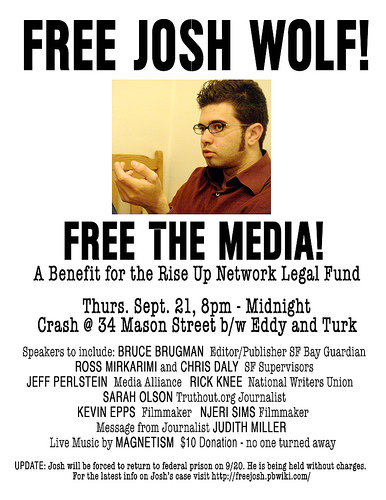The press elites failed us on health reform
NYU professor Jay Rosen likes to talk about the “church of savvy” in political journalism. Diane Winston has a pretty good breakdown of the term, but essentially it describes how the journalism elite shape the news in cooperation with sources. The result is a contextless news presentation, with focus on horse race, tactics, gamesmanship, and “how will this play politically?” rather than verification and hard questions, rigorous reporting, and a focus on getting it right.
This is necessary in elite political journalism, of course. It shies away from tough questions because tough questions mean no guests for Sunday morning talk shows. Wash, rinse, repeat, frustrate your audience.
Markos Moulitsas of DailyKos.com likes to describe the outcome a different way, such as how he did during his SXSW panel when he argued that journalists have become “stenographers for those in power” rather than people who fact-check.
I was thinking about this as I followed the last night during the health care vote. The endless coverage on the cable nets had to fill airtime somehow, and so we got a fair amount of the usual stenographer action. Republicans say X, while Democrats say Y, meanwhile there’s an actual bill online against which we can check such claims. The result is repeating two contradicting statements, at least one of which by definition is actually false, rather than verifying both claims and reporting only the correct one.
In other words, the press didn’t really learn from the Joseph McCarthy problem. Read more
Shield law protecting bloggers a good first step
The New York Times reported yesterday that there has been some progess this week on discussion over a federal shield law that would protect journalists from having to reveal their sources. The big movement, as noted in the story, is that the protection would be expanded to cover “citizen journalists” who report the news via publications such as blogs.
Shield laws do a lot of good but can at the same time be a scary thing to lovers of free speech (for background, see Wikipedia on shield laws). To this point, we have them only on a state-by-state basis, and they allow reporters freedom to cite sources off-the-record in order to have the information needed to report important news to our readers. Watergate, obviously, is the most notable example of a journalist using this technique to break important news and some states (including my home state of California) have recognized that this is an important way to get information out that serves the public good.

Even though he was an independent blogger, Josh Wolf served more time in jail than any journalist in U.S. history for protecting his right not to reveal a source.
Although some states have shield laws, the push for a federal shield law has been going on for years. One reason is that the state laws only cover journalists in cases that are under state jurisdiction. The minute the feds get involved, as Josh Wolf learned back in 2006, those protections don’t exist. Just a couple years ago the court reaffirmed Branzburg v. Hayes, which said the First Amendment doesn’t give journalists the right to protect their sources. As a result of this, Wolf (a blogger journalist) went to jail to protect a source and ended up serving more time for this offense than any journalist in U.S. history.
Scholars and media professionals alike have wrung their hands over shield laws for years. They do provide journalists with a tool to break important news in their communities, but in some ways this has made anonymous sourcing so easy that it at times feels like a crutch for lazy reporters. Also, for those of us who argue for transparency of method, anonymous sourcing is anathema to the process. At best, it should be used sparingly. Read more
